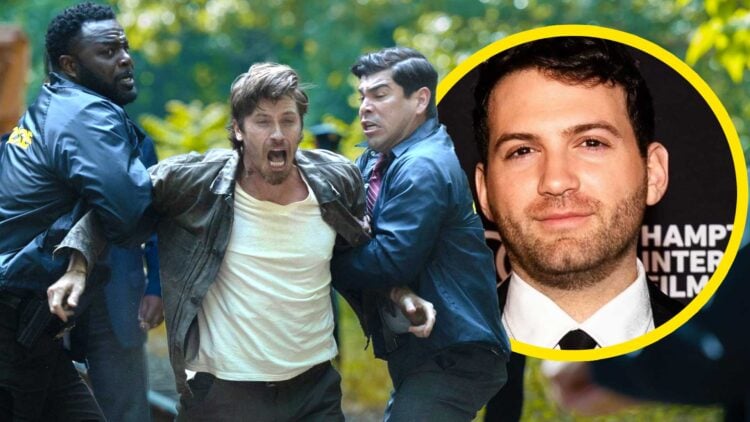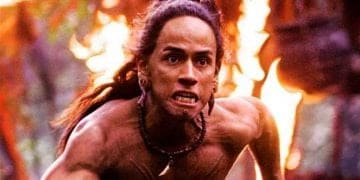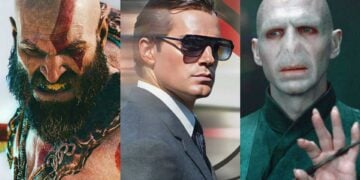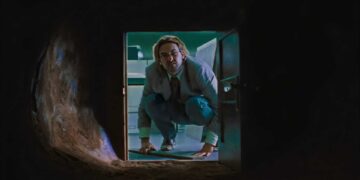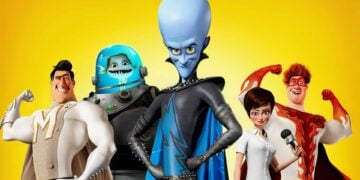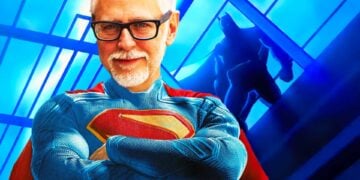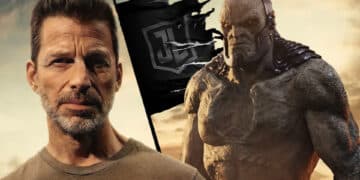Written and directed by Evan Ari Kelman, Barron’s Cove is set to deliver an emotional gut punch to the viewers, especially those who are parents. The story follows Caleb (Garrett Hedlund) who grieves the loss of his only son, Barron (Dante Hale). Believing the truth is being buried, he kidnaps Ethan (Christian Convery), the son of a powerful politician and whom Caleb believes is responsible for Barron’s shocking death.
Fortress of Solitude chatted to Kelman about the resonance of Barron’s Cove and the years-long journey of bringing it to the screen. The filmmaker revealed why he chose Hedlund and Convery for their respective parts, and the lessons from the film that the audience can take with them after the credits roll.
Fortress of Solitude: I was reading about and researching Barron’s Cove when I came across a few internet articles about the script circulating from around the early 2020s. Could you tell me a little bit more about your journey of getting the movie made and how long it took?
Evan Ari Kelman: Absolutely. I was just thinking about this a moment ago. Wow, this has been such a long and rewarding journey, and it’s kind of the culmination of years of work. I wrote the first scene of this movie over six years ago, but I’d been trying to write a feature to direct ever since I graduated school, which was 10 years ago, and this project is my first feature film. It was a 10-year process, and then more if you want to add the four years of film school and everything before that. It’s an incredible moment.
But yeah, in terms of the writing process itself, it was six years ago. I wrote the first scene of the film and started to think about how to tell the story. There’s a lot of twists and turns in the film, interesting characters, big journeys, and big arcs, so it took me a couple of years to figure it out.
Once I had put it on paper and gotten a draft that I thought was pretty good, I submitted it to the Nicholl Fellowships, and it placed very well; it was a semi-finalist there. At the time, the Nicholl’s would publish a list of all the semi-finalists and finalists. And you have all the production companies that are looking for new material, and they looked at my logline and genre, and they were intrigued. I got five to 10 cold emails, including one from Mandalay Pictures. They were really excited, interested, and engaged – which was the dream – and we were off to the races. Then we started another years-long process of casting, raising the money, and actually putting it together.
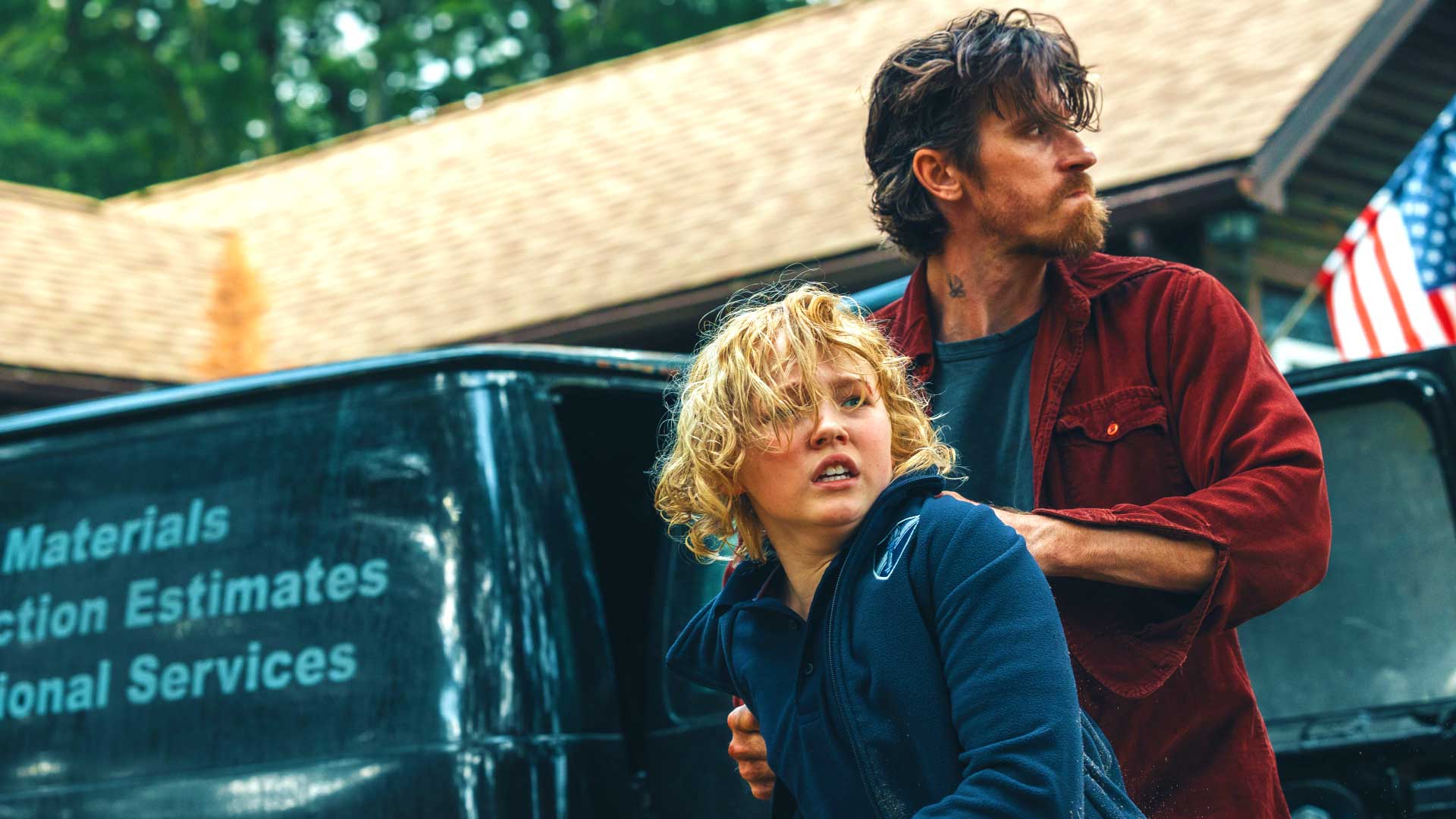
Were there any significant changes from the original script version doing the rounds? If I’m not mistaken, I think I noticed the character’s name changed at some point.
Yeah, there were a lot of changes. There was one character name change, for sure. Christian’s character was originally written as Alex, and we changed it to Ethan, because of some similarities that might have been pointed out to me in the character name. I was inspired by so many different movies and different characters. And every now and then, a character name would come into my mind, and then I would realize later, “Okay, maybe let’s do something different there.” And that was the case with that.
The script changed a lot at every stage. They say, “Write the movie three times,” – when you’re writing it, shooting it, and editing it. That happened in a lot of small ways and a lot of big ways. In the editing room, we had one really large plot element that I really loved [but had to be cut.]. If we were doing television, I think it would have been great. But in a feature film, which has to be a contained story, even if there’s something thematically or character-y interesting, it can dilute from the core narrative, and you never want that. So those are the kinds of hard decisions that you have to make.
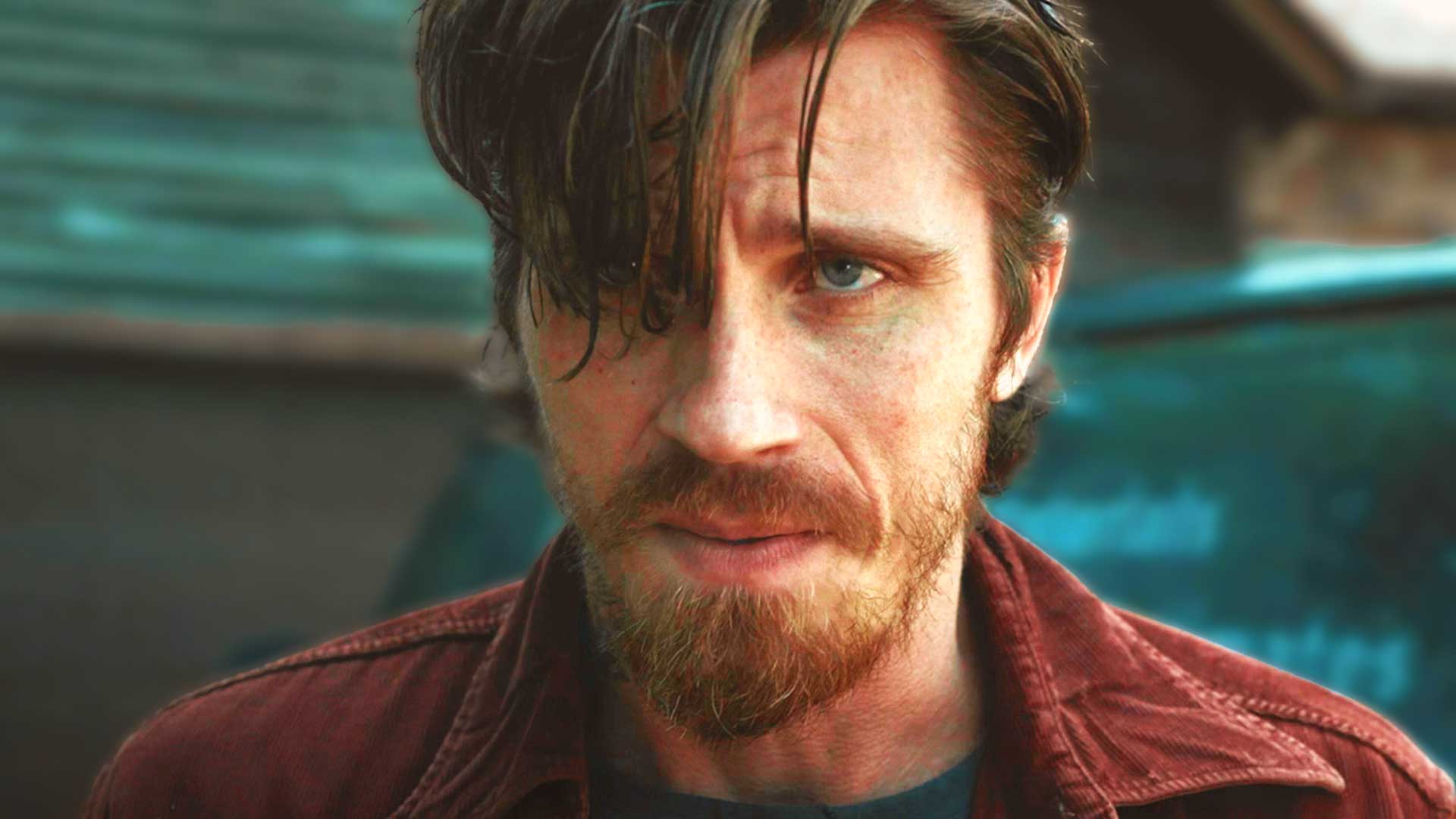
Were there any previous performances from Garrett Hedlund in specific that convinced you he was the right person to play Caleb?
That is such a great question. I have been a Garrett fan forever. He’s got such rawness and authenticity he’s able to bring to these roles. I’ve seen it in every role he’s ever done. If you ask me this tomorrow, I’d give you a different answer. The movie that’s coming to mind for me right now is Triple Frontier. I love that movie.
He’s got so much power, even in subtle ways, and that’s what this character called for, because there are moments of intense restraint and moments of raw, difficult emotion and complicated situations. There are very few people on the planet that can do that, and I knew that Garrett could. He’s my dream actor, and when he was excited by the material, it was one of the happiest days of my life.
Christian Convery is a phenomenal young actor, and he’s already starred in countless notable projects. In fact, I remember seeing and recognizing his talent already in Sweet Tooth. What was it about him as a performer that convinced you he was right for the part of Ethan?
Being a young actor is really difficult. I was a young actor when I was a kid, and I wasn’t very good, even though I really wanted to be. So, now as an adult, I’ve worked with young actors a lot. It’s a very rare combination of talents to be able to be a great performer, but also be an intellectual and really speak deeply about the character, the motivation, and the beats, and be a real professional and a real artist.
I knew Christian would be great just having watched his work, but I didn’t really understand how professional he was until I started working with him. In one of our first meetings, when we looked at the script, he was asking me about the backstory, the motivations, and the relationships, and he got so deep into the weeds of this character. I was so impressed. I will never forget that interaction, because I was blown away. Honestly, it inspired me to up my game, because I was like, “Okay, he’s asking really thoughtful questions.” And it pushed me to go even deeper, to be able to meet him at the level that he wanted to be at. It was incredible.
Speaking of Ethan as a character, how difficult was it balancing a story of him both as an antagonist and victim?
Great question. It is hard, but also if you can tap into a certain truth, there’s a way to do it authentically. Almost all the time, people and kids who are bullied take out their resentment, anger, and their loss of control, and it comes out through these really negative ways where other people become their victims. That’s what the cycle of abuse is. So, once you start to peel back those layers, you realize the antagonists – that we’re all familiar with in real life or in media – are very often victims in their own way.
There’s this great saying, “The child who is not embraced by the village will burn it down to feel its warmth.” So, the idea is they ultimately want to feel love, they want to feel warmth, but if they can’t get it the right way, they will try to get it the wrong way. And that’s all part of that antagonist and victim complexity. Once you try to approach that authentically, I think you can come close to creating a character that feels real.
In the director’s statement that’s in the production notes, you mentioned there’s a personal importance to Barron’s Cove, especially in terms of the bond between father and son. In the film, Caleb risks it all because he wants to find out what happened to Barron and to get justice. In the end, he receives answers and a form of justice. From a storyteller’s perspective, what was Caleb’s lesson to be learned here?
It’s a really great question. I thought about this a lot. Every time I watch the movie, there’s another layer that comes out for me. I think there are two important lessons. The first is – and this is something he learned across the entire film – we don’t have to be defined by the worst thing we’ve ever done. Which is a way of saying we don’t have to be defined by our self-limiting beliefs. We can decide what our own stories are, how we frame them, and who we want to be tomorrow. We don’t have to be what people tell us we are. We don’t have to be the negative things that we’ve said about ourselves. Our future is defined by the choices that we make today. I think that’s a lesson that he learns pretty deeply, and then he’s able to live by that example in order to teach Ethan that very important truth.
The other thing that I know he learns is that he was always enough. I think that’s a really important lesson for everybody. He’s struggling with a deep insecurity. “Was I a good-enough father? Is there a chance that my son really did kill himself and maybe I did miss something?” Without giving too much away, I think he realizes that his relationship with his son, and his son’s relationship with him, really was everything that he wanted it to be, and he was the father he always wanted to be. I know that’s a very powerful realization for that character, and I think that’s something that all of us can learn from.
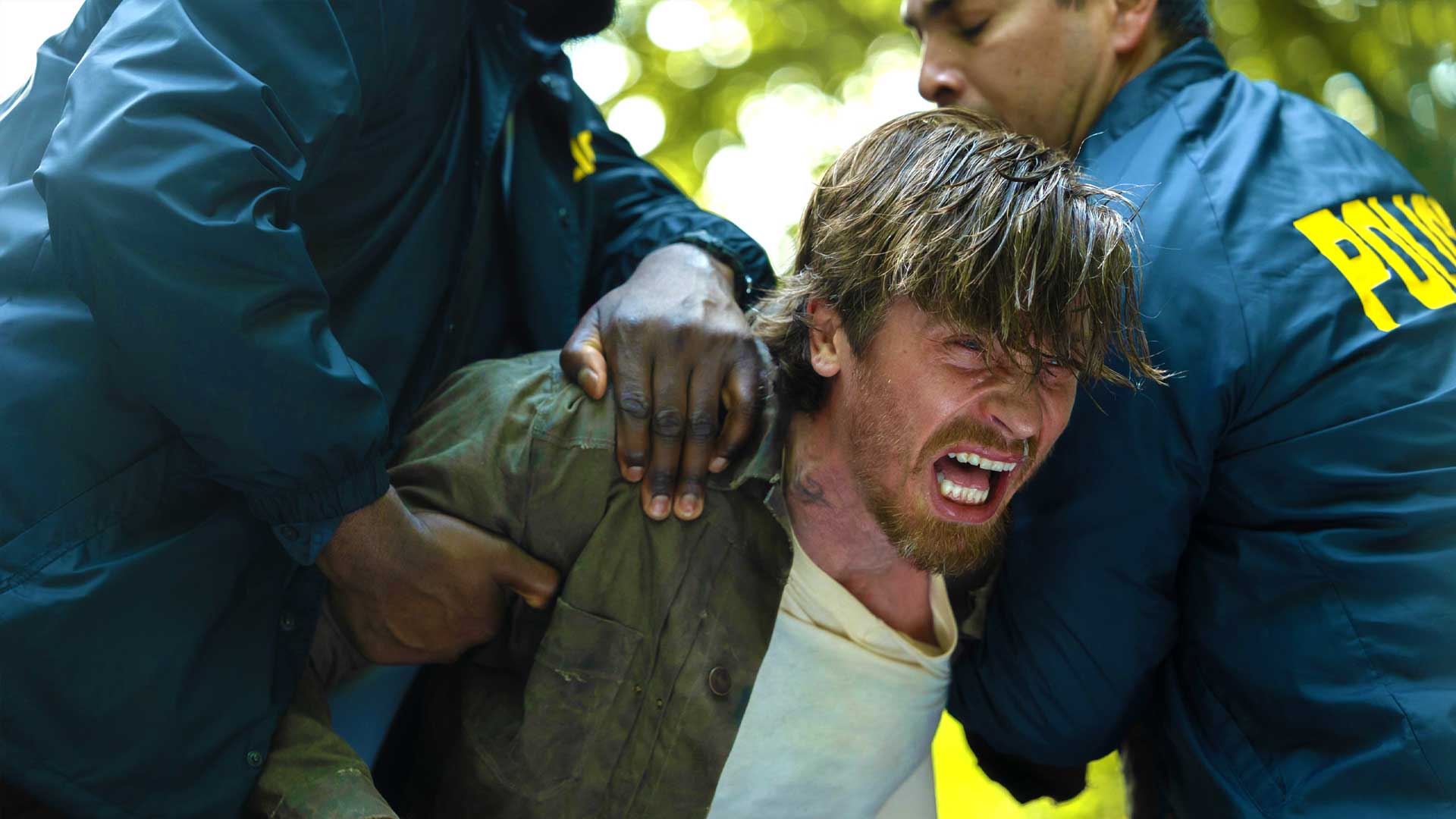
The film is one emotional gut punch after another. Were there any scenes in particular that were pretty hard to film? That scene when Caleb arrives at the actual train tracks and realizes his son is gone hit me.
That was a brutal scene to film. Garrett is an incredible actor. He’s truly a professional behind the scenes,and you wouldn’t necessarily know it, but he’s able to maintain such a cool and calm presence on set. I know he gives 120% of himself and then some in those moments. He’s giving everything that he can, take after take, and it’s inspiring. Of course, that’s a great example of a scene that I’m sure was challenging and also probably rewarding in its own ways for all of us.
I was thinking about this today… The only time that anyone ever felt like we were approaching a line, and you wouldn’t have expected it. There’s a scene where Christian is eating burgers after Caleb comes back and gives him food. And we did two or three takes of that. I remember Christian being like, “Evan, please. I can’t eat any more burgers. I don’t know how many more of these I can eat.” [Laughs]. That was really the only time anybody said to me we need to slow down, pump the brakes, or anything like that. Otherwise, everyone just wanted to keep pushing, go further, and explore. I think that made it a really special experience for me as a director.
And final question for you. After Barron’s Cove, what’s next for you?
I’ve got a bunch of movies that I am working on. I wrote a movie earlier this year that I’m taking out to producers right now, polishing and getting into shape, so hopefully we can begin casting that in the next couple of months. I’ve got another movie that I’m starting to write in a week or two – I’m already pretty deep in the outline process. So, for me, it’s about getting those projects into the next stages. Thankfully, there are new projects that I get submitted. So, my team and I are reviewing and reading, making a determination on them. Am I a good fit? Is it the right thing to do next? It’s a little early to say exactly what the project will be, but I’m pretty confident we’re going to have something soon.
The interview was lightly edited for clarity.
Barron’s Cove arrives in theaters and VOD on June 6.

